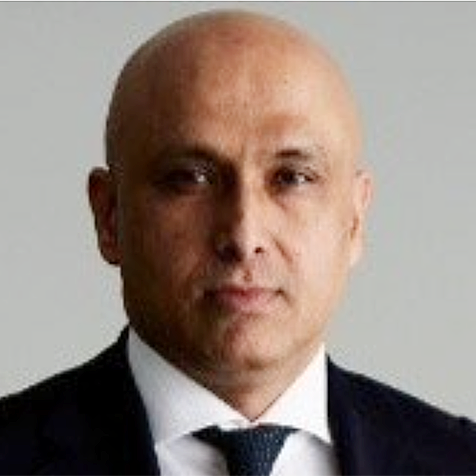
Compared with the other advanced economies in Asia, India started late in its digital journey. Hong Kong commenced its digital drive in 1997 with the launching of Octopus card, while South Korea launched a prepaid public transportation card called Upass in 1996. The NFC popularized digitization in Japan in 2001, while China started using the QR (Quick Response) code in 2011.
India’s digital awareness evolve from 2014 when the government laid down a huge fundamental digital infrastructure under which the country’s 1.2 billion population were given their digital identity called Aadhaar card India. This digital identity, which is a 12-digit unique identity number based on biometric and demographic data, was connected to their mobile phone, which in turn is connected to their bank account.
The second fundamental shift happened in 2016 when the government created what it called the United Payment Interface (UPI), an instant real-time payment system that facilitates inter-bank transactions. “This was a digital backbone where all trade and bank-to-bank transactions were put onto automated platform,” says Anand Jha, head of trade finance in India at Deutsche Bank.
.png) He adds: “This digital revolution, which we call the fourth industrial revolution, is picking up pace in India. It is heartening for all the constituents of trade finance, including exporters, importers and regulators. We are optimistic that this the right direction to go and will be an advantage to all stakeholders.”
He adds: “This digital revolution, which we call the fourth industrial revolution, is picking up pace in India. It is heartening for all the constituents of trade finance, including exporters, importers and regulators. We are optimistic that this the right direction to go and will be an advantage to all stakeholders.”These two landmark initiatives hasten India onto the digital path, and help underpin the digitization of the trade ecosystem. In March 2014, the Reserve Bank of India (RBI) launched the Export Data Processing and Monitoring System (EDPMS) intending to streamline the flow of export data. The system was able to capture data pertaining to shipping bills issued by customs and it enables the banks to report realization and settlement of these shipping bills against inward remittance received by their clients. This enhanced the tracking and monitoring mechanism of cross-border trade and reduces the associated paper flow.
The RBI did the same for imports with the launch of the Import Data Processing and Monitoring System (IDPMS), which went live in October 2016. This is designed to enhance ease of doing business and facilitate data processing for payment of import transactions and their effective monitoring.
From 15 days to two
What EDPMS and IDPMS offer was to expedite the verification of the actual exports and imports – a process which was previously paper-based. Bhuvaneshwari Karthik, head of trade finance product in India at Deutsche Bank, explains: “The regulators required the banks to check whether the actual exports and imports have taken place. You can just imagine those exporters with huge amount of exports coming to us with boxes of documents to check. Deutsche Bank, acting both as an enabler and a gatekeeper, have to ensure the veracity of these documents, which will take us anywhere between a week and 15 days to certify that the exports have actually taken place, and then registered the said documents as required by the government.”
Now, with digitization, the whole process whether it was for exports and imports take hardly a day or two. To further enhance the process, Deutsche Bank launched in October 2017 the first paperless import payment solution in India with its TradePay platform. The solution uses IDPMS to verify the import payments by checking them against the details made available by the client on the system, eliminating the need for clients to share any physical documentation. The data is then enriched by the client to meet the regulatory requirements, validated by Deutsche Bank and converted into a payment-ready state.
.png) Thereafter, the clients can book FX contracts electronically through TradePay, thus streamlining the payment process. The payment authorization can be done directly on TradePay or through the importer’s ERP (enterprise resource planning) system. “The clients can use Deutsche Bank’s tools such as Autobahn and FX4Cash for foreign exchange rates, making it easy for them to authorize the payment directly using TradePay,” says Karthik.
Thereafter, the clients can book FX contracts electronically through TradePay, thus streamlining the payment process. The payment authorization can be done directly on TradePay or through the importer’s ERP (enterprise resource planning) system. “The clients can use Deutsche Bank’s tools such as Autobahn and FX4Cash for foreign exchange rates, making it easy for them to authorize the payment directly using TradePay,” says Karthik.As a result, this digitized workflow solution can help to reduce complexities and delays in the supply chain, enhance controls and transparency of payments and increase the speed of settlement, while meeting the regulatory requirements. “The system enables the clients to submit their documents in a very easy manner,” adds Karthik.
Another initiative launched by the government is the e-bank guarantee portal, considering that the central and state governments, including railway companies, are some of the biggest users of guarantees in India. In addition, stamp paper can also be issued electronically. The government is likewise working to standardize the bank guarantee template, similar to the issuance of letter of credit.
“With the standardization, acknowledgement of e-stamping and having a definite regulation around the issuance of e-bank guarantee,” says Jha, “the heavy paper-based trade instrument is being converted into a fully digital trade service.” Karthik adds: “This is an interesting time for trade in India where transparency and customer conveniences are improving.”
Previously, the letter of credit was being issued only through paper in domestic transaction. This was replaced by a system called Structured Financial Messaging System (SFMS), which is a search-based letter of credit issuance platform, thus digitizing this whole ecosystem. SFMS, which Karthik points out is akin to Swift, is a secure messaging standard developed to serve as a platform for intra-bank and inter-bank applications.
Apart from e-bank guarantee, the GST return is likewise completely digitized. “It is across pan-India basis where certain parties will be authorized to give the return to the bank and they can file digitally,” says Karthik. “This is now accepted by the government and it is a huge relief the way we submit the return.”
MSME reach
With digitization making life easier for trade finance stakeholders in a country such as India, will it be able to help address the gnawing global trade finance gap estimated at US$1.5 trillion, which impact the MSMEs (micro, small and medium-sized enterprises) the most.
In India, says Jha, the non-bank financial institutions are better equipped to handle the financing requirements of MSMEs because of their flexibility and they share presence in multiple locations. For foreign banks, they approach the MSMEs in a different way, which is usually through their corporate relationship.
Jha explains: “We will approach our big corporate anchor clients with an offer to finance their MSME suppliers, with payments coming from these corporate clients. We have sort of a payment guarantee – if the goods are acceptable to our anchor clients, then we would receive payments on due date.”
The challenge for the banks is how to onboard these MSME clients, which may number into thousands. “Here, technology will play a vital role,” says Jha. “There are multiple things at this point in time that we are trying to explore in the market such as collaborating with fintech companies or connecting our platform with the government GST platform so that in a while-label situation, we will know whether the invoices are genuine or not.”
In onboarding clients, Deutsche Bank is also trying to evaluate whether it can use the GPS (global positioning system) technology to certify the location of the suppliers since one of the requirements is to physically verify the place where the suppliers are working from. “All of these initiatives are at play and we care confident that in the next one to two years, our KYC (know your customer) process, which takes anywhere from five to six days to complete, can be compressed to two days,” concludes Karthik.








